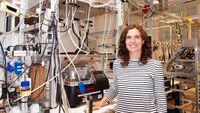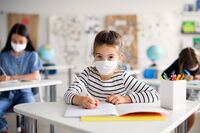Campaigns
The EDIAQI project uses four campaigns, combining measurement and communication, to gather evidence for policy changes, training, and raising awareness about the impact of indoor air quality on health and the environment.
Evaluation of low-cost sensors
The "Evaluation of Low-Cost Sensors" campaign assesses the performance of readily available consumer-grade sensors for monitoring indoor air quality. While these compact and affordable sensors offer exciting possibilities for researchers, community groups, and citizens alike, it's crucial to understand their limitations. This campaign addresses the need for more information about the accuracy, reliability, and best practices for using these evolving technologies.
Seville campaign
The Seville Campaign examines indoor air pollutants and how people behave and ventilate spaces in places like schools, hospitals, homes, and public transport, particularly focusing on vulnerable groups.
Vilnius campaign
The Vilnius Campaign will intensively measure air pollution both indoors and outdoors to determine how vehicle emissions affect air quality in schools located in highly polluted downtown areas. Using advanced instruments and low-cost sensors, the campaign will analyze the size and number of aerosol particles, ultrafine particles, and black carbon. Schoolchildren will wear sensors to track their exposure to PM2.5 throughout the school day, providing valuable data on how outdoor pollution infiltrates indoor spaces and impacts children's health. The campaign will also assess microplastic levels in the collected air samples.
Awareness campaigns
To fight air pollution, the EDIAQI project is educating children and families about its dangers. Through questionnaires and pilot studies, the project will assess what people know about indoor air quality and its health effects. This information will help create better guidelines and training materials to improve awareness and promote healthier indoor environments across different communities.



